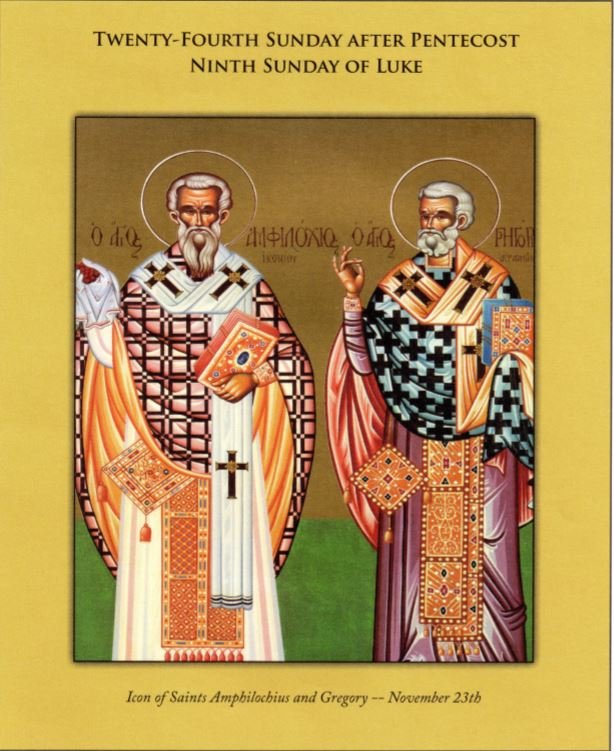 As we end the 24th week after Pentecost, the Church assigns a reading from Luke’s Gospel that relates the cure of a woman who had been badly stooped for over 18 years. It is important to note that Jesus performed this cure supposedly on the Jewish Sabbath. Exclusive to the Gospel of Luke, this story presents Jesus’ kindly regard for the unfortunate and for women.
As we end the 24th week after Pentecost, the Church assigns a reading from Luke’s Gospel that relates the cure of a woman who had been badly stooped for over 18 years. It is important to note that Jesus performed this cure supposedly on the Jewish Sabbath. Exclusive to the Gospel of Luke, this story presents Jesus’ kindly regard for the unfortunate and for women.
Two things about this story should be noted: (1) the woman is said to have been afflicted for 18 years and the number 18 in Judaism means Giving Chai or Life and (2) the Mishnah (i.e., an authoritative collection of exegetical material embodying the oral tradition of Jewish law and forming the first part of the Talmud) gives intricate rules for what a person can do the Sabbath. Tying and loosing knots, for example, are among the kinds of forbidden work. This is why Jesus uses the example of watering a donkey on the Sabbath, to do this you had to untie the donkey. The Mishnah also states that an animal can be led no more than 200 yards and can never be whipped on the Sabbath.
One of the immediate things a person can conclude when reading this story is that symbolically the woman was bent over from the absolute sheer weight of the restrictions that her religion placed on her. Jesus straightens her to her full height by removing all these restrictions and calls her to simply believe that God loves her. He also shows her that how you treat others is more important than keeping rules. Jesus showed her true compassion. The chief of the synagogue, on the other hand, showed her no compassion. Even though he was probably aware of her suffering – she was a member of his synagogue – he cared less about her condition and would have denied her a cure because rules were more important.
Of course the chief of the synagogue was also probably jealous of Jesus and His ability to cure. Like many other rabbis at that time, he didn’t want Jesus to become popular because Jesus might take people away from his synagogue. Therefore He had to find fault with Jesus’ actions. It also didn’t help that Jesus publicly helped a woman He did not know. This was forbidden in Jewish society.
Jesus’ actions, on the other hand, were motivated by His love for others and His compassion for the woman. He did not allow rules to get in the way of helping others in need. He understood in a very deep way that the only way He could have, as a human, a relationship with His heavenly Father was by loving others and doing all that He could to help them.
Jesus clearly demonstrated that religious rules for living are useless if they don’t lead a person to deeper compassion and concern for others. The primary goal of all religions (or should be) is to bring people closer to God by helping them become more open and loving to others. It seems, however, that many use religion to bring division among people. Religious beliefs have, unfortunately, been used throughout history – even today – to justify war and conflict. When people believe they alone have the truth, conflict always follows.
Jesus calls us to love one another!
